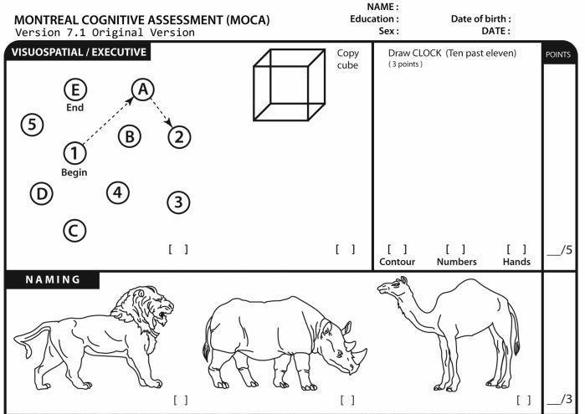By Joyce Lee
President Trump recently completed a cognitive assessment with a perfect score, but a report in The New York Times explains that the 10-minute screening exam he took, called the Montreal Cognitive Assessment (MoCA) is not a definitive or even a diagnostic tool for cognitive decline.
The MoCA, widely used at Alzheimer’s disease research centers across the country, is a screening test designed to identify problems that occur in the earliest stage of memory problems, often known as mild cognitive impairment (MCI). MoCA tests cognitive skills like memory, attention and concentration, and control and self-regulation. However, medical societies do not recommend cognitive screenings like MoCA because they are “not like mammograms for breast cancer and colonoscopies for colon cancer.” These screenings cannot help physicians provide a specific diagnosis or even begin treatment, in part because most forms of cognitive decline, like Alzheimer’s disease, have very few to no effective treatment options.
“Nonetheless, Medicare recipients are often given cognitive screenings,” PMC Co-Director Dr. Jason Karlawish noted. “That is because Congress instituted a requirement that Medicare cover a brief cognitive screening test as part of the annual wellness exam.”
The problem with just one test is that a physician does not have anything to compare it to; the baseline is unknown. Physicians at memory centers usually look at changes in cognitive abilities over time to make a diagnosis, relying on family members or others who know the patient well to recount their observations of cognitive decline. Patients can also be given longer, more challenging neuropsychological tests to probe at the changes in these skills. Clinical exams like MRI or PET scans can also help physicians with reaching a diagnosis.
Read the full New York Times article here.
